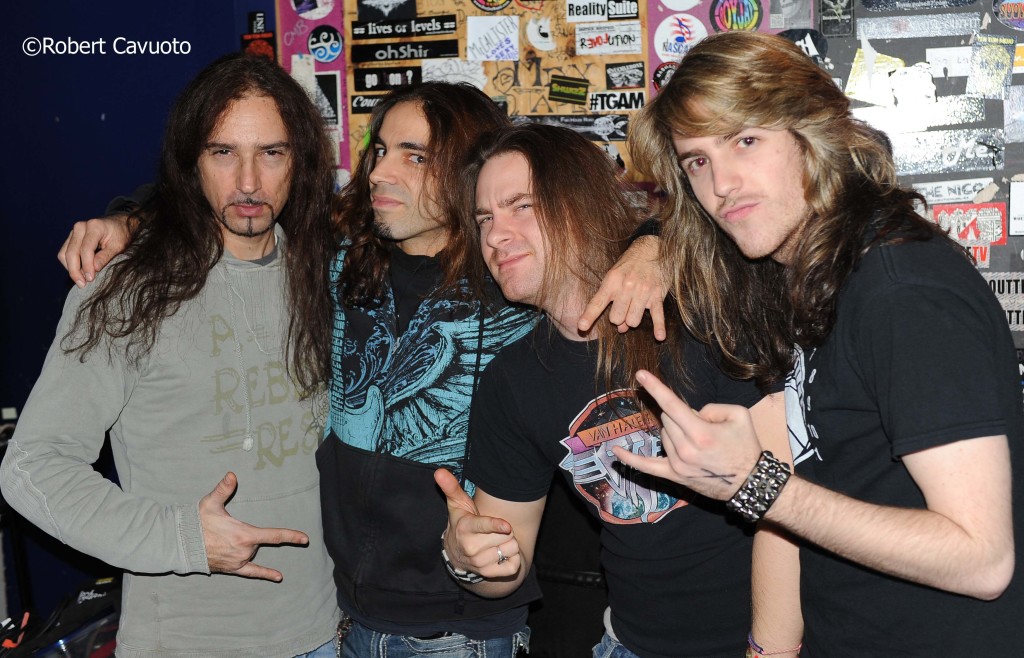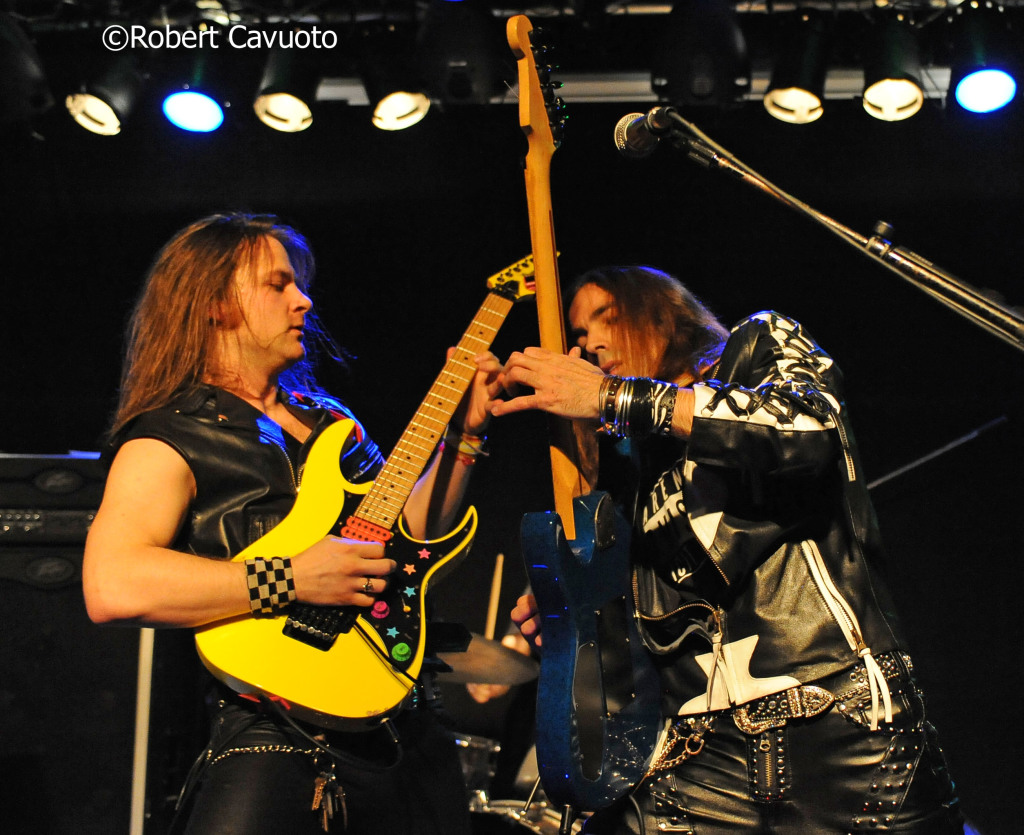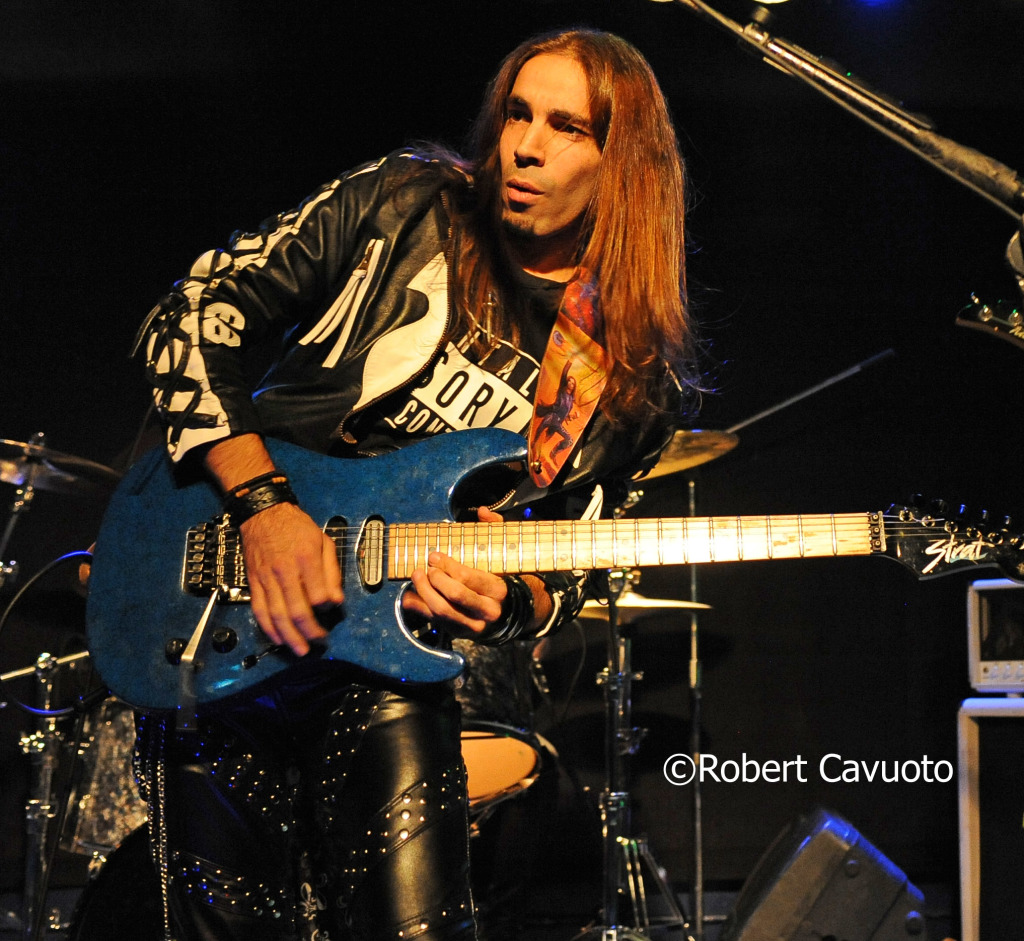By: Robert Cavuoto
Ethan Brosh is widely considered one of the most promising instrumental guitarists on the scene, which is evident by his latest album, Live the Dream. Last year he was opening for Yngwie Malmsteen and now he is opening for guitar legend Jake E. Lee’s band, Red Dragon Cartel.
Ethan’s solo band is comprised of Dan Whitelock on drums, Giorgio Mongelli on bass and Nate Montavlo on second guitar. Together they will travel across North America for the month of December dazzling fans with blazing duel leads, killer guitar riffs and melodic rich songs.
On the second night of the tour I caught up with Ethan at Mexicali Live to talk about his brand of instrumental metal music, his latest CD, Live the Dream, and working with such legends as Yngwie Malmsteen, George Lynch and, of course, Jake E. Lee.
******
Robert Cavuoto: For someone who is so technically proficient, are there challenges to performing your type of music in the live setting?
Ethan Brosh: Always, especially with my solo band because there is more attention on the guitar and I have to be on top of my game. Being on the road and going from place to place I need time to get into a groove. I need to get comfortable, which is a hard sometimes. I like to warm up and that can be tough when things get messed up. I’m a perfectionist, so yeah, it affects me.
Robert: What led you down the “metal path”?
Ethan Brosh: When I was 10 or 11 years old I saw my brother’s Iron Maiden Number of the Beast cassette and was drawn to the cover.
When I started listening to it I was hooked and had to get an electric guitar. There was no other choice [Laughing]. Derek Riggs did the cover of my first CD, Out of Oblivion, and the artwork on my second CD, Live the Dream, was done by Joe Pagano who did all the Motorhead cover artwork.
Robert: Describe the creative process of being an instrumental composer and performer.
Ethan Brosh: I approach writing instrumental songs the same way I do with my other band that has a singer. I try to write with an intro, verse, chorus, bridge and solo. My instrumental songs are not “never-ending solos”.
If you don’t do it right it can get boring for people. I try to have a variety of different sounds that keep the CD fresh. Each song has to have a different groove, speed, tone, or mood. This is what grabs the listener. If you just shred all over the place consistently, after 30 seconds people will tune out.
Also, I never start a song with a shred lick. I start with a chord progression or a riff or a melody. The hardest thing is when you have a great section; you have to build another great section that will fit to sound like part of the song. That’s where instrumental song writing is hard. It’s one of the biggest problems that I have with jazz or fusion, as they tend to write one great section and one great melody and then play it with a never-ending solo, then come back into that melody.
Robert: What are some of your strengths that you rely on when performing or creating CDs?
Ethan Brosh: I don’t think of things in that way. I just try and do my best.
Some people would say that just having a great technique is one of their strengths, but that’s not the case for me. I always try to play at a higher level than I’m currently at, when I’m not; it feels more like a weakness. I always strive to get to the next level so it never feels that I’m uncomfortable with anything.
Robert: You have some great tones on the new CD. What gear did you use and what gear do you bring on tour?
Ethan Brosh: I mainly use ISP amps and pedals. ISP made the original Decimator which is a revolutionary noise reduction system for guitar rigs that almost every guitar player has that in their rig. It provides such a killer tone on stage, but even more so in the studio. I can dial in a perfect tone in two second. In the past I have always felt that something wasn’t quite right while on stage, whether it’s too much or too little bass or if it was too bright. There is a cut and boost for every frequency.
For the CD I used my Fender Strat with a Floyd that I don’t take out of the house anymore and an old ’80s Ibanez limited edition. It’s one of my two recording Ibanez guitars that I use for clean tones.
On this tour I brought a small rig with the ISP cabs and the ISP Theta pedal, as well as a really tiny Stealth power amp. With it I can power two 4 x 12 cabinets and be really loud with great tones. My tour guitars are a blue HM Strat that just feels so comfortable. I also have a Charvel as back-up.

Robert: Does being in an instrumental metal band pose more challenges as it relates to popularity and recognition than say a band with a singer?
Ethan Brosh: Oh yeah, but at the same time I like doing the band thing too with a singer. I like the fact that it is so different than anything going on out there right now.
We have been getting a fantastic reaction from the fans. You have Joe Satriani and Steve Vai and not too many other guitar players touring for an instrumental band? You may see them at clinic tours. The guys in the band want to keep touring and they are having fun with it. That alone makes us want to keep going.
Robert: What have you learned from the guitarists that you worked with like Jake E Lee, George Lynch and Yngwie Malmsteen?
Ethan Brosh: Being around those guys you hope that some of their greatness will rub off. The more time spent with them the more chances that it will happen.
From Jake I learned all the tricks that I was missing over the last 20 years to “Bark at the Moon.” [Laughing].
Seeing George work is a beautiful thing as he relies 100% on instinct. He’ll be the first one to tell you he doesn’t understand music theory and he works by ear and visualization. I should rely less on my musical knowledge and feel things the way I hear them.

With Yngwie I have to be careful as there so many people who try to rip him off, even if they don’t admit. I made a decision that I would go in a different direction. Here and there I’ll write a neo-classical tune, but knowing that he is the best of the best and no one can touch him. There is no reason to even try and compete with that.
He seemed to appreciate that I wasn’t one of those people. I was inspired by his improvisation skills. People don’t often talk about it and he doesn’t really get credit for it. I would watch him on the side of the stage every night and he doesn’t play the solo like on the records, he improvises all the time. He does it while tossing the guitar around his neck, throwing out kicks, and running the stage. If he messes up you won’t even know.
He also goes on stage and gives 100% no matter of the venue or number of people in the audience. That’s something that unfortunately effects my playing. If I’m not feeling it or not feeling it from the crowd, it weighs on me and affects me. With Yngwie it’s the complete opposite, when he is on stage he is in his own world. It makes me step it up.

Ethan Brosh